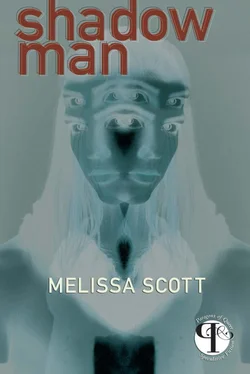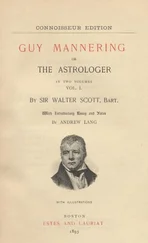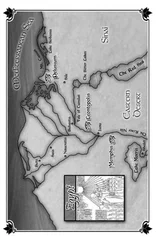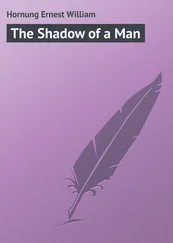“Sit,” Temelathe said again impatiently, and Warreven lowered himself into the second chair.
“Now, what’s all this about not wanting to be seraaliste ? Strictly speaking, it’s not an honor you can refuse.”
Warreven sipped the nectar, enjoying the thick, cinnamon-lemon taste. “I didn’t ask to be on the list. I didn’t even know my name was on it until today—and that, my father, is hardly appropriate procedure.”
“You couldn’t have been nominated without some sort of permission, at least by proxy,” Temelathe said.
“Nevertheless—”
“A recording error,” Temelathe said, and waved the idea away with his free hand. “Something didn’t reach you—the mails can be unreliable, especially this new net you like so well. That’s why I wanted to keep the old systems in place.”
“It’s a good reason to question my candidacy,” Warreven answered. “That sort of—error—could be held to contaminate the whole slate.”
Temelathe frowned. “The Modernists would love to hear you say that.”
“Yes. And I agree with their positions.” Warreven took another sip of the nectar, and a fragment of root-pod landed, bitter and stinging, on his tongue. “Which is why, my father, I don’t understand your attitude. Let’s be frank, I won’t do you any good as seraaliste .”
Temelathe regarded him over the rim of the liquertie glass. “Let’s be frank, then, my son. You don’t do me any good as an advocate, but not opposing your name for seraaliste does me good with your less-radical kin. So, my son, I want you to run. I don’t really care whether or not you’re elected—though I think you’ll care, given your opponent—but I will not have you challenge the slate.” He paused, and continued with a smile, “I’m sure you’ll find, if you check your records, that you received word that your name would be put in nomination months ago.”
Warreven allowed himself a rather bitter smile in answer. “I’m sure.” And someone will find himself a little richer at the network offices, too, for adding a backdated note to my file . “I won’t campaign,” he said, and knew he sounded merely petulant.
“I wouldn’t worry about it,” Temelathe said.
Warreven sighed, admitting his defeat. He wouldn’t need to campaign, not if Temelathe was backing him, and the threat of challenging the slate was just that, an empty threat. The Stillers would never agree to that if he invoked Modernist politics—the Modernists were too radical even for a clan known to be progressive—and without the backing of the full clan, he could never hope to overthrow the candidacy. “I hope you don’t regret this, my father,” he said, and Temelathe’s smile widened.
“I doubt I will.” He paused. “I’d like to see you and Tendlathe friends again.”
Several answers rose to Warreven’s lips, but he controlled himself. He said, “First, that’s his problem more than mine. Second, you don’t help things by reminding him of a marriage neither one of us really wanted.”
“You’d’ve been a better wife than Aldess.”
“No, I wouldn’t.” Warreven stood. “Good night, my father.”
Temelathe shook his head. “You’re making a mistake, Raven. Tendlathe’s the person you need on your side. But, good night, if you want it that way.”
“I do,” Warreven said, and wondered, too late, if Temelathe might not be right after all.
Marianj : (Hara) part-time or semi-professional prostitute who plays a passive or woman’s part.
Marijak : (Hara) part-time or semi-professional prostitute who plays an active or man’s part.
The trouble at the harbor would only be worse after full dark. Warreven sighed, mentally dismissing his earlier plan to call Chauntclere or Shan Reiss, and leaned back against the cushioned seat, resigning himself to a quiet night. As the driver swung the coupelet onto Tredhard Street, turning north to skirt the harbor area, he saw a familiar figure striding up the long hill. He leaned forward to hit the intercom and said, “Pull over.”
The driver’s eyebrows rose, but he did as he was told. Warreven slid back the coupelet’s window. “Folhare!”
She turned, her practiced smile shifting to a more genuine expression as she recognized the face. “Oh, it’s you.”
“Thanks.” Warreven took in her clothes at a glance, a short off-world style skirt over heavy leggings, the low-cut traditional bodice only partly concealed by a length of spangled gauze. “Working tonight?”
“Yeah, but you’re not buying,” Folhare answered.
“No. Were you going any place in particular?”
Folhare gave him a wary glance. “There’s a club up in Startown, I was going to go there. There’s a band of sorts, and they’re open all night.”
“Would you mind company?”
“For old time’s sake, or are you really bored with Clere? ’Cause you really don’t need the money.” Folhare’s smile was wry. They had, briefly, shared rooms above a land-chandler’s shop before Warreven had become a clan advocate.
“Old time’s sake, and no one’s home,” Warreven answered. “And there’s trouble at the harbor and I want to go dancing.”
“I was down there earlier myself,” Folhare said, and sighed. “All right, but I really do need to make my rent.”
“I won’t get in your way,” Warreven said. He knew better than to offer to help. He turned back to the intercom. “You can let me out here. I won’t need you after all.”
The driver shrugged, visibly disapproving, but wasn’t too proud to accept the Blue Watch assignats that Warreven offered. He pulled the coupelet away decorously enough, and Warreven stood for a moment looking up the busy street. There were bars and dance houses here, mostly catering to the locals, but the doors were closed, uninviting. If you weren’t known to the bouncers, you wouldn’t get in—especially tonight, Warreven thought. He said, “So where is this place?”
“Just over the hill,” Folhare answered. She sounded tired, and Warreven gave her a wary look.
“Business off?”
Folhare snorted and started up the long slope. “Not great. A sale I was counting on fell through, so not only am I left with a custom quilt and no idea how I can resell it, but I’m short the rent.”
“Lovely.” Warreven glanced sideways as he fell into step with her, unable to stop himself from making the offer. “Is there anything I can do?”
Folhare shook her head, managed a laugh. “I doubt it. But thanks, Raven.”
“If I can loan you anything—”
“No.” Folhare looked sideways at him, wide mouth twisted into a grimace. “I’m still enough of a Stane not to take from Stiller.”
“Oh, for God’s sake,” Warreven began, and Folhare shook her head.
“No.” After a moment, she added, “Thanks.”
“Suit yourself,” Warreven said. They walked in silence toward the top of the hill, Folhare stretching her long legs against the slope. He matched her step easily enough, though she was taller, watching her out of the corner of his eye. He had known Folhare since the boarding school at Riversedge, had shared rooms with her in Bonemarche for almost six local months, all one winter and half the spring, eighteen bioyears ago. She had just been kicked out of her home mesnie then, less because she was a fem than because she wanted to do more than just replicate the usual traditional textiles for use and the off-world trade; he had just refused to marry Tendlathe Stane and was afraid to go home to the ensuing controversy. Half the Ambreslight mesnie had been furious that the marriage had been proposed at all, the other half had been furious that he hadn’t accepted it regardless of the gender shift, and he himself had wanted to forget it had ever happened. Neither he nor Folhare had had much money: he had worked odd jobs and played trade when the rent ran short, which was more often than not, while Folhare had worked for a sweatshop making bad copies of traditional tunics, tried to save enough to buy the good material she needed to make the quilts that were already starting to win notice, and played trade. Warreven touched the edge of the vest he was wearing, rich red silk printed with gold, scrap from a quilt she had made him then. They could have solved all their problems by marrying, founding a proper mesnie of their own and thus qualifying as adult members of their clan, eligible for the clan subsidies that supported most indigenes, but the option had not appealed to either of them, and had never been mentioned aloud. Besides, Folhare was a fem, as well as a Black Stane, and any one of those factors would have made a legal marriage difficult. Probably his own mesnie would have stretched the point, Warreven admitted silently—he had already been suspected of being wry-abed, and the mesnie was desperate to remedy that situation—but Folhare would never have agreed. Or would she? he wondered suddenly, looking sideways to see her strong, broad-boned face caught in the light from a street sign, the planes of cheek and jaw made harsh by the deep shadows. Neither of them were getting any younger; if they had married, she wouldn’t be hustling trade to pay her rent.
Читать дальше












